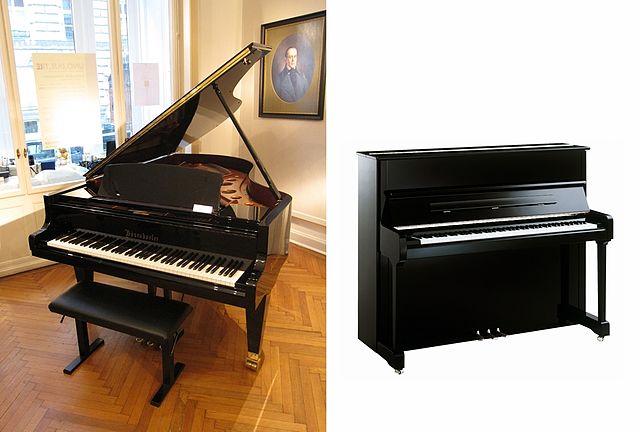- This topic has 10 replies, 8 voices, and was last updated November 2, 2012 at 2:29 am by waynebruce698.
-
AuthorPosts
-
February 12, 2012 at 4:23 pm #1052392
The Loudness War – YouTube
Loudness war – Wikipedia, the free encyclopediaWhat was/is the purpose of maximizing amplitude/volume/loudness on music? If you wanted it louder couldn’t you just up the volume, if the kick/bass sounds too loud isn’t that what an equalizer is for?
I assume it was limitations of audio devices (hifis/mp3 players/radios etc) reaching their max amplification(or volume knob setting?). But surely this(loudness compression) should be implemented by the device and not the audio recording itself?
Or quoting wikipedia: “Jukeboxes were often set to a pre-determined level by the bar owner, yet any record that was mastered “hotter” than the others before or after it would gain the attention of the crowd.”
But aren’t jukeboxes a bit old these days? Why would a album like ‘Death Magnetic’ by Meltallica (released 2008) be subject to this?
February 12, 2012 at 4:41 pm #1249248Working fine here =l.
February 12, 2012 at 4:59 pm #1249246I think it has something to do with being played on the radio now days rather then Juke Boxes.
September 30, 2012 at 4:05 pm #1249242its done by commercial radio stations to sound “louder” and so the music and presenters can be heard in vehicles or other noisy places like workshops, and has since carried through to the music production itself. However in analogue days there was also a hard limiter on the audio circuit to the transmitter, both the telephone company and the Communications Ministry insist on absolute maximum limits of audio levels, otherwise the music could leak into other peoples phone calls where the wires ran together in one bundle…
So some stations add two lots of this compression and it sounds rough. captured a good(?) example of this just now from an online radio station which I won’t name and shame (other that its not us nor Taiko) – TBH I’d noticed this on a few stations but wanted to check that Foobar 2000 wasn’t indicating false data on its PPM
this is from a Orban loudness meter which is what most broadcasters now use, look carefully at the bottom… yes that is over 0dBFS :crazy: just because you can get it through the digital circuits and the DSP in some devices will limit the clipped audio doesn’t mean you should do it, that station had its compression turned up way too high and I switched over as it was starting to sound rough…
 September 30, 2012 at 4:48 pm #1249250
September 30, 2012 at 4:48 pm #1249250Things sound better when they’re louder, and people like louder music. The bass and highs are more clearly heard compared to just the mids. So if I wanted to produce electronic music, I’d make it as loud as possible without comprimising the dynamics too much, so it sounds better compared to other people’s work (or rather, doesn’t sound worse, since everyone does this). It wouldn’t work for me to just tell people to buy louder headphones. Then, of course, even for people with louder headphones, my music would STILL be quieter compared to everyone else’s.
October 1, 2012 at 9:40 am #1249247We automatically think louder things sound better generally, so producers want their music to sound loud, especially compared to other music. The problem is when you push this logic to the extreme things start to sound squashed and fatiguing.
October 29, 2012 at 3:50 pm #1249243this might have been going on for some time
forte (IT) = loud (EN)
piano (IT) = soft (EN)a fortepiano

a pianoforte

the fortepiano (as its name would suggest) needed less effort to make more noise, (a slight pressure gave high velocity to the hammers) but composers and listeners often said it sounded harsh and uncultured. So its design was adapted into the modern style instrument played today.
October 29, 2012 at 3:59 pm #1249249@dubstep_joe 467638 wrote:
What was/is the purpose of maximizing amplitude/volume/loudness on music? If you wanted it louder couldn’t you just up the volume, if the kick/bass sounds too loud isn’t that what an equalizer is for?
It boils down to this – the vast majority of playback equipment is biased towards a certain frequency range (usually fairly small speakers, 2 off, with limited maximum amplitude).
Compression/expansion gives the engineers in the studios a little device to compensate with, and yes, it’s part of the art of making sure “your” tracks sound deeper. In that they spread the usage of the amplitude across more frequencies.
Now, if your music kit HAS all the controls to do this with any music, fair enough, it’s an annoyance. Because you have to manually compensate to make sure the levels stay all the same during a live performance mixed from studio recordings.
In short – life is harder on live performers of music (actually, it’s harder on live performance of any kind of art). There are plenty of artists who sound great in a studio but can’t perform live. And also plenty who can perform live but fall apart in a studio because they NEED a crowd to perform to.
November 1, 2012 at 12:08 am #1249251Many people claim that the loudness war has screwed up music. I don’t know if you hear metal at all, but Metallica’s album “death magnetic” is an example of extreme compression drive by the need to make it sound louder. You don’t hear any real dynamics which kinda sucks. The problem is that when a song has cranked-up volume, you instantly categorize it as better to as song having lower volume, even if this is just a first impression that can be corrected by turning up the knob.
November 2, 2012 at 1:08 am #1249245It seems to have gone crazy in the last few years. Hopefully there is a glimmer of hope that it is calming down though, and some producers/labels are brave enough to release stuff that hasn’t been dynamically raped to get that perceived “oooo that’s hench” sound.
November 2, 2012 at 2:29 am #1249244it is getting better – but only because the big money is fast leaking away from the music industry due to download culture, so for more and more people (including producers and engineers) its become a hobby or a freelance occupation with uncertain work patterns rather than a paying day job – so increasingly anyone left is doing it for the love rather than to aggressively market songs.
At the radio station I have been working with recently I was discussing it with the two freelance engineers doing the main link TX and control room work (both former staff from BBC and ILR who have been laid off) and they don’t like it either.
The younger chap (around my age) pointed out that a lot of digital “pro audio” kit is often all the wrong level when co-existing with analogue equipment, he agreed further confusion is caused by VU meters and younger people being taught wrongly even at college and uni which if not compensated for is a recipe for various amounts of unwanted distortion. Ironically a much bigger problem in conventional radio is the daytime presenters on shows with more talking, who do not always watch their levels, and older folk used to analogue tape recorders with VU meters where you could get away with redlining slightly (and it was done to get the sound away from hiss/noise..)
We made sure both both the FM audio and the online stream are set to reasonable levels (its usually around -23 LKFS which is the EBU recommendation, maybe -19 LKFS max). There is a slight amount of processing (for the benefit of people listening on small speakers) but not stupid amounts and all there are EBU “eurometers” (on screen meter) at the console and on TX monitoring (as well as two Sifam PPMs the older chap retrieved from a knackered Alice Soundtech desk) and are presenters are trained to use them (or they will hit the compressor and limiter downstream of studio 1). and I can check all the meters via a VNC link (I’ve got it on the double screen just now).
The streaming level is kept around -10dbFS peak and its a 192K stream (which happens to be the same level and bitrate Party Vibe for live broadcasts when possible) 😉
if anyone complains these streams are “too quiet” they should get some better loudspeakers or cans – I am not in the business of caning peoples ears’ with bad sound!
-
AuthorPosts
- You must be logged in to reply to this topic.
